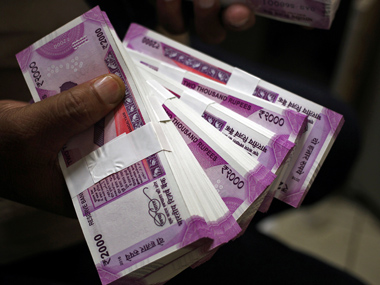Giving positive signs of an economic revival, the Goods and Services Tax (GST) collection in January is expected to hit record-levels. Perhaps, the highest collection may contract the revenue shortfall, said a media report.
#JustIn | GST collection figures for the month of December, recorded in January are out! Sources tell @TimsyJaipuria that collections have crossed the Rs 1 lakh cr mark pic.twitter.com/mT4z4aQqsa
— CNBC-TV18 (@CNBCTV18Live) January 28, 2020
The GST collection may hit a record Rs 1.15 lakh crore in January and the shortfall in direct tax collections may come down to Rs 11,000 crore in the April-January period of the current financial year as compared to the corresponding period the previous year, said
a report in The Hindustan Times. Allaying concerns of a major revenue shortfall, the direct and indirect tax collections are reportedly on track due to efficient tax administration even though the economy has been facing a slowdown, the report said citing government officials in the know of the matter. [caption id=“attachment_6013191” align=“alignleft” width=“380”] Representational image. Reuters[/caption] “The GST collection in January is as per the revised target of Rs 1.15 lakh crore. It is achievable as we have been able to plug revenue leakages worth about Rs 40,000 crore by using technology and data analytics,” an official was quoted as saying in the report. If the report is to be believed, it will be for the third time in a row that the GST collections will cross the Rs 1 lakh crore mark. The highest monthly GST collection so far, since its introduction in July 2017, was Rs 1.13 lakh crore in April 2019. The
GST collection in December 2019 remained at Rs 1.03 lakh crore indicating a pick-up in consumption, which also slipped into slump mode. In November last year, the GST collection crossed Rs 1 lakh crore mark and stood at Rs 1,03,492 crore. Earlier, in July GST collected crossed the Rs 1 lakh crore-mark at Rs 1.02 lakh crore. The officials had then said that the GST revenue in November 2019 reflected a pick-up in consumption and improvement in compliance. “The GST revenue during the month of December 2019 from domestic transactions has shown an impressive growth of 16 percent over the revenue during the month of December 2018,” a government statement said. The government has set an ambitious Rs 1.1 lakh crore monthly GST target for the remaining part of the current fiscal and asked taxmen to step up efforts to achieve the goal. The finance ministry had budgeted an ambitious 25 percent growth in net tax revenue to Rs 16.5 lakh crore in 2019-2020. It managed to collect less than half of that in the first eight months of the year. India’s gross domestic product (GDP) grew at 4.5 percent in the second quarter of the current financial year, the lowest since March 2013. According to the government’s first advanced estimates, India’s GDP is expected to grow at 5 percent in 2019-20, the lowest since 2008-09. — With PTI inputs


)

)
)
)
)
)
)
)
)



